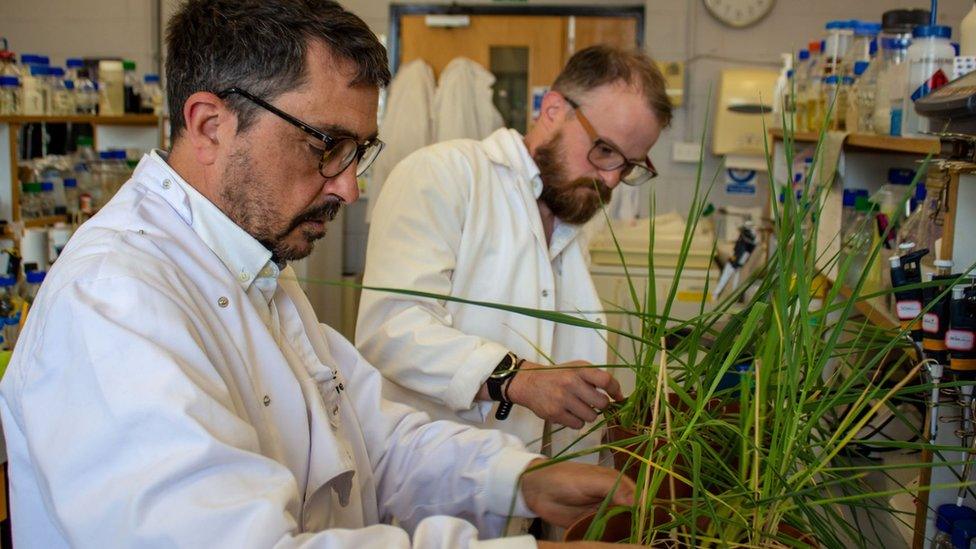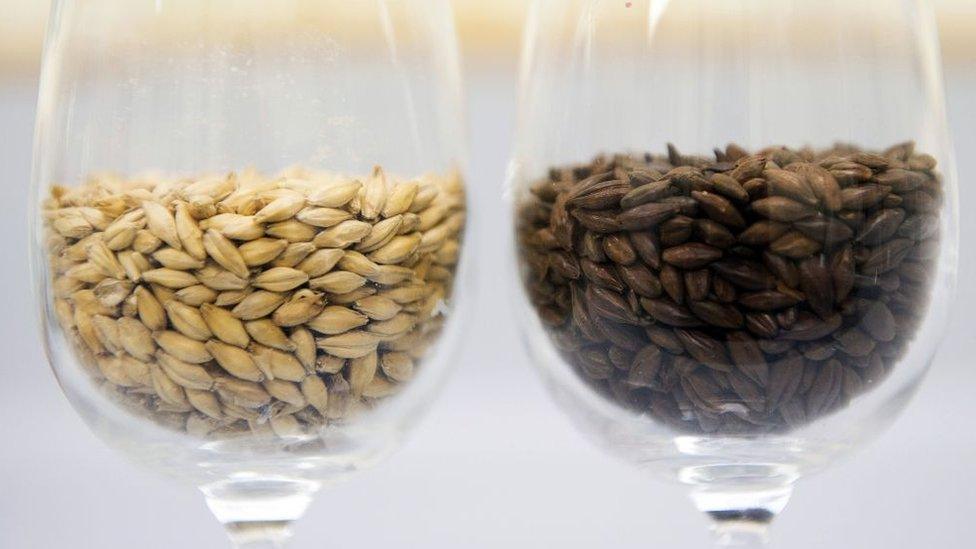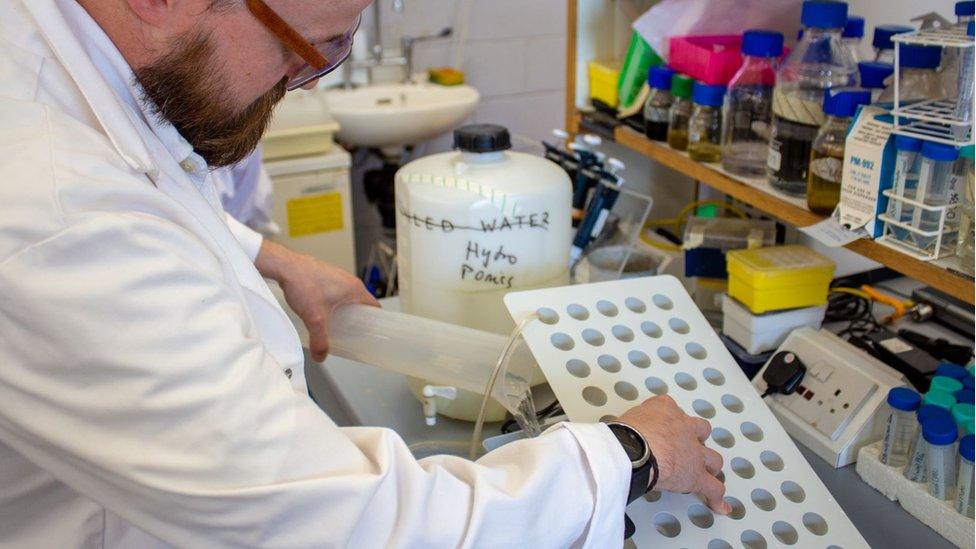Drought-tolerant barley could help 'future-proof' whisky industry
- Published

Dr Peter Morris and Dr Ross Alexander examine barley plants in the lab
Researchers at Heriot-Watt University in Edinburgh have found a gene that helps barley cope with climate change.
They said it enabled barley to resist drought and thereby "future-proof" the whisky industry - and could be extended to other crops.
Barley is the fundamental raw material for both whisky and beer production.
Global heating is hitting barley crops, with 2018's hot summer having a catastrophic effect on yields across Europe, especially in the UK.
"There was a loss of around 8%," says Dr Ross Alexander, a lecturer in the Institute of Life and Earth Sciences at Heriot-Watt.
"Which maybe doesn't sound like a lot, but when you go from 7.9 billion tonnes down to 6.6 billion tonnes that's a huge deficit."

Most of the barley used in Scotch is grown in Scotland
The Scotch Whisky industry is worth billions of pounds a year and supports 10,000 jobs so the price and availability of barley is a big deal.
The research to unlock the secret of the barley genome has taken five years.
A barley plant has almost 40,000 genes - that's almost double the number each of us has.
The researchers found the key gene was: HvMYB1 - Mib for short.
"If you forget to water your houseplants they'll droop," Dr Peter Morris, who led the work.
"If you look at our experimental plants, they have the ability to retain much more water than normal barley plants.
"That's because the little pores where water escapes out of the plant are more tightly closed."

HvMYB1 acts as a master switch, turning on other genes which protect the plant against heat stress and allowing it to continue growing even when water is scarce.
The gene already exists in barley plants but at Heriot-Watt they have bred plants in which the genetic switch is always in the "on" position.
Dr Alexander says that increases the amount of "protectants" in the plant - sugars and amino acids which help it rise above drought
"It's like the plant has an up-regulated sense of stress - it's on high alert," he says.
It involved breeding generations of barley plants to carry the switched-on gene.

Dr Alexander sets up the hydroponics
They - and unmodified control plants - were then subjected to heat stresses in the laboratory.
A plant's roots are where the first signs of stress show, so hydroponic techniques were used to grow the plants in liquid instead of soil, making their roots more accessible.
It was detailed, painstaking and sometimes tedious work.
But Dr Alexander says that it was, at least in some respects, inexpensive.
He says: "We actually picked those hydroponic systems up from Ikea."
Funding for the research has come from the Scotch Whisky Association and the food and drink arm of Scottish government's knowledge exchange programme Interface.
The results have been published in the Journal of Plant Physiology and Biochemistry, external, and Dr Morris says it holds out the prospect of future-proofing Scottish barley.
"We need barley for whisky. We need it here in Scotland because it much cheaper to grow our barley here than ship it in from elsewhere," he said.
"But we need that barley to be tolerant to a changing climate."
Dagmar Droogsma of the Scotch Whisky Association agrees.
"Approximately 90% of the barley used for Scotch is sourced from Scotland," she says.
"We welcome this research which helps to provide resilience against the effects of climate change."
The next step is to take the discovery out of the lab and breed it into improved strains of barley.
But according to Dr Alexander the good news is not confined to lovers of whisky, or indeed Scotch broth.
"It covers all plants, because all plants have a Mib," he says.
Dr Alexander says the research has the potential to help plant breeders.
"They could use this as a guide and a tool to help find varieties which will grow when it's 25 degrees outside and there's no rain."